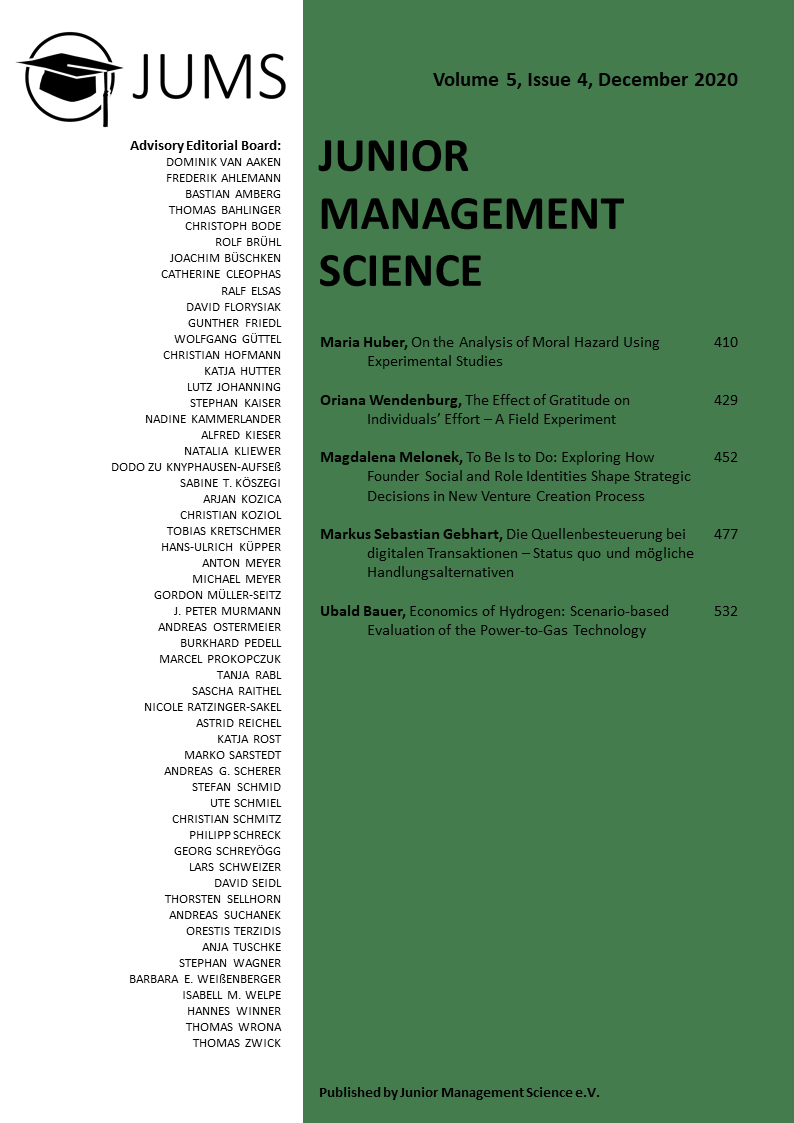Abstract
Power-to-gas (PtG) facilities apply the chemical process of water electrolysis to produce hydrogen and represent a low-carbon alternative to conventional hydrogen production methods when coupled with renewable energy sources. This thesis aims to evaluate the economic potential of the PtG technology and explore how policy changes can affect its profitability, measured by the break-even price of hydrogen. For the derivation of the break-even price, I rely on a net present value model that considers cost and revenue components as levelized terms, which I adapt by incorporating energy policy instruments. I develop an algorithm for the investment analysis of PtG projects, which considers both the capacity of the PtG facility and the renewable energy source as variables and optimizes their ratio for profitability. My analysis shows that large-scale PtG facilities can already compete on the market for medium-scale hydrogen supply at a price of 3.55 €/kg. However, profitable operations of small-scale PtG plants still depend on the implementation of policy changes. I find that small systems could produce pure renewable hydrogen at a break-even price below 3.00 €/kg and thus more than halve their costs, if supportive policy measures were adopted. Keywords: Hydrogen economics; power-to-gas; renewable energy; capacity optimization.

This work is licensed under a Creative Commons Attribution 4.0 International License.
Copyright (c) 2020 Junior Management Science e.V.

